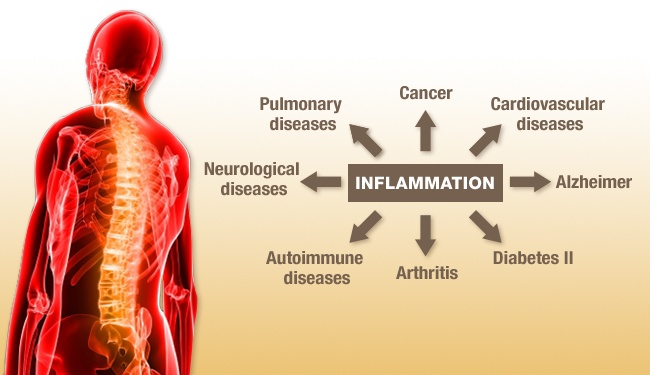The body is very complex and when it deems an outside stimuli harmful it has a response to try and fix the "problem". This response is called the inflammatory response and is brought on by numerous things including exercise and poor diet. Yes inflammation is necessary for our body to fight off disease, heal, and (when pertaining to exercise) to make progress in the gym. We need to stress the body to allow for the breakdown and build up of muscle tissue but the problem arises when we don't give our body enough recovery time. Without proper recovery we just continue breaking down the muscle tissue and we see no progress.
Inflammation due to poor diet on the other hand is not necessary. It can easily and likely will lead to chronic inflammation if nothing is done to fix the problem. Chronic inflammation has been linked to cancer, diabetes, heart disease, and obesity. Let's go over some foods that trigger this response, foods that should be avoided.
-highly processed foods are on top of the list. These foods usually contain all the offenders; high content of saturated fat, sugar, and lack of nutrients.
-simple carbohydrates like white breads, cookies, candy, white rice, anything not whole grain in the cereal/granola bar section, soda.
-meats and dairy high in fat content including whole fat milk and cheese, butter, red meat, bacon, sausage, greasy foods.
-instead stick to the perimeter of the store and go with the lean meats, fruits and veggies, fat free dairy, and whole grains.
Your body's response to food is more complex than just how many calories you eat. How your body runs depends entirely on how you treat it. Eat crappy, workout sporadically, sleep erratically and you're not going to meet your goals whether it be lose weight, gain muscle, perform better, or just be healthy. Eat good and feel better is as simple as it is!





